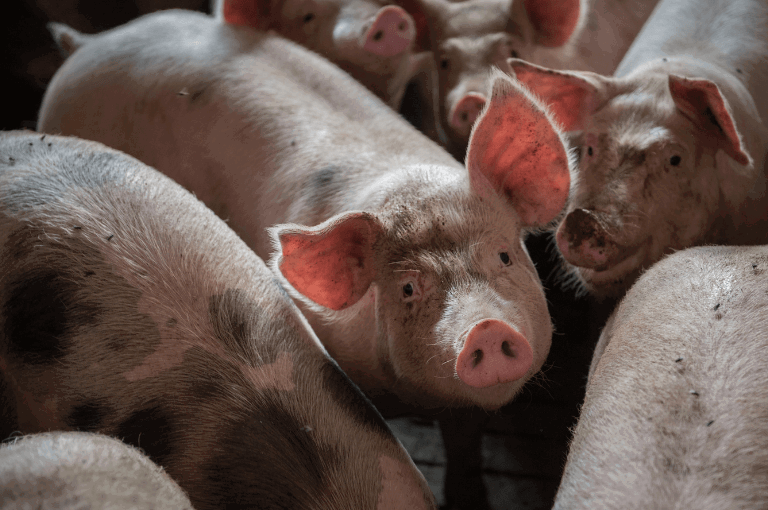10/29/2020
By Rachel Dreskin
Even in these unprecedented times, conscious consumers like you continue to break cages for millions of hens in our food system, and companies across every sector—and across the world—are listening.
Despite the many challenges presented by the COVID-19 pandemic, this year’s just-released, blockbuster EggTrack report shows that progress is marching on: Driven by rising consumer demand for transparency and better treatment for animals, companies and producers continue to make progress on their commitments to source only eggs from hens that are cage-free by 2026 or sooner.
Compassion in World Farming tracked 210 of these companies in this year’s report, the first time we’ve expanded beyond the US and Europe to include global companies. Created to ensure companies can and will stick to their cage-free commitments, the annual EggTrack report provides a birds-eye view of the global egg market, identifying both leaders and laggards in the industry.
Caging hens for the purpose of egg production is widely considered to be one of the worst-of-the-worst factory farming practices. Cage-free eggs come from hens raised in barns, where they have space to turn around and stretch their wings, as well as places to perch, scratch, nest, and take dust baths. By contrast, battery cages, where most hens still live, only give them space equivalent to the size of a sheet of paper.
The good news for hens and consumers alike is that some of the biggest names in food are continuing to make eggcellent progress, including General Mills, Danone, McDonald’s, Subway, and Target. Unfortunately, others—like Burger King, Hardee’s and Carl’s Jr., Krispy Kreme, and The Fresh Market—are falling eggregiously behind.
Fortunately, in the past five years, nearly every major food company has committed to go 100% cage-free, with the proportion of hens raised in cage-free systems in the US growing from 9.8% in 2016 to 25.1% today. And even better—and as this year’s global EggTrack report demonstrates—corporate demand for cage-free eggs is no longer limited to Europe and North America.
Since Compassion in World Farming first published EggTrack in 2016, the number of companies with global cage-free commitments has grown from five to more than 37, including global giants like Nestlé, Marriott, Barilla, Kellogg’s, Aldi Sud, and Aldi Nord and brands like Breyer’s, Hellmann’s, Ben & Jerry’s, Sara Lee, Entenmann’s, and Häagen-Dazs.
Though the progress we’ve seen has been remarkable, there are still potential obstacles we’re keeping our eyes on. As cage-free markets grow across the globe, companies and consumers must be aware of “combination” and “limited access” systems, which are marketed by manufacturers as “cage-free” and endorsed by industry groups, but have doors which can be easily closed—allowing a producer to switch back to caged production, or more worryingly, during “cage-free” production when an auditor isn’t present.
It’s imperative that companies do the right thing, as consumers are increasingly supporting brands that honor their commitments to source cage-free eggs and putting pressure on state governments to pass laws that either ban or put limits on industry-standard cages.
For companies, the challenges ahead can only be tackled with clear communication and investment from both producers and purchasers. Building up the supply of cage-free eggs that will be needed to meet demand in 2025 will take time, resources, and planning. For producers to build the necessary infrastructure and supply, they must have clear expectations and willingness to invest from their customers. By publishing our EggTrack report every year, we aim to ensure that meaningful improvements are made for every laying hen, whether she lives in the United States, China, Europe, or anywhere else in the world.
Thank you for helping us make sure companies can and will stick to their cage-free commitments, which are set to benefit millions of hens every year. Let’s build a cage-free future, together.
 |
Rachel Dreskin is the US Executive Director of Compassion in World Farming. |
